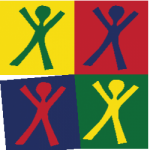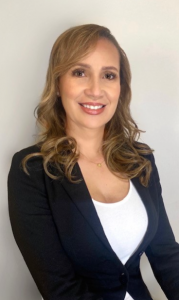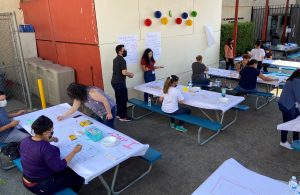PILA’s Coaching Program:
Social-Emotional Wellness Training for Teachers

By Para Los Niños Team
February 7, 2022
PLN has coaches across all three charter schools and seven early education centers. One coach, Anna Ochoa, has worked at PLN for 6 years. For the past two years, she has served as a Trauma and Wellness coach for PLN’s youngest students. “I worked with a teacher who had been teaching for many years. She was, unfortunately, having a difficult time communicating her needs and being aware of those needs,” shares Anna Ochoa, Coach and Therapist at PLN of her experience.

“Her issue wasn’t working with students as it was about communicating with her colleagues to be understood or supported. Through coaching, she gained the tools and self-awareness needed to overcome preexisting tensions and enhance her relationships with her students and peers. A testament to her growth is how she’s been handling all the added stress of working through COVID. Being an early-ed teacher, she doesn’t have summer or winter off, so she worked through the pandemic while having health and personal issues. It’s been a challenging time for her and everyone. But is she able to manage it? Absolutely.”
What is the Coaching Program?
In coaching, “We put children aside, and ask teachers, what do you need?” says Anna.
Anna continues, “The priority is making sure that teachers are not overlooked. They are taught to improve their students’ social-emotional competencies, but teachers need to know it, model it and live it too. With coaching, we help teachers have trauma-informed practices, form strategies on becoming grounded and calm, identify trauma in a student and family, and recognize symptoms of trauma or triggers within themselves.”
Coaches provide professional development through one-on-one coaching and trainings with school staff, at Para Los Niños charter schools and at identified school sites. Their time together cultivates emotional resilience in school communities and addresses the social-emotional needs of school staff to create safe and supportive learning environments for all students. As a result, school staff have more positive interactions with students, gain opportunities for self-reflection, and find confidence and ability to provide trauma-informed practices.
Support in classroom/student management, social/cultural awareness and self-management/awareness are the most commonly requested areas of counseling.
Why is coaching teachers important to the school’s success?
“Our teachers are excellent and capable of managing a wide variety of situations,” Anna explains, “but I’ve seen many of them struggle. Like anyone else, they find themselves getting triggered in the classroom or in circumstances that make it difficult to emotionally regulate themselves. When that happens, a disconnect starts to happen with the kids, which may widen because a lot of our students have experienced intergenerational trauma. They have ‘big feelings’ and don’t know how to communicate what they’re feeling or needing to the teachers. That’s why teachers are coached with the concept of social-emotional learning: helping teachers build their self-awareness can really change how they see a student or a situation.
“Although coaching may imply teaching, our work can be better described as helping teachers discover themselves. We often remind our coaches to give themselves permission to pause and reset, not just keep going, going, going. We ask them, A. ‘Why are you a teacher?’, and B. ‘What do you need to continue doing what you’re doing?’”
Anna continued, “This work is so necessary, but new – it’s not offered anywhere else. Social-emotional training has been pushed to students and parents before, and some private and charter schools have tried to implement a similar approach with teachers. However, their programs are not as comprehensive or done to the same extent the way we have with our teachers. This approach is not in any school district, but hopefully in the near future, what we’re doing becomes the norm.”

The vision to empower teachers in social-emotional wellness* came to fruition in 2018, thanks to the funding of the Department of Mental Health, and the partnership of six other agencies: St Anne’s Family Services, Los Angeles County Department of Mental Health, Pathways LA, Peace Over Violence, Children’s Bureau, and Special Service for Groups, Inc.
At PLN, we continue to push the bar in advancing healthier schools, where both the students and the teachers thrive. We are proud to have Trauma and Wellness Coaches like Anna who support school staff in cultivating a culture of self-care, self-compassion, and social-emotional well-being. If you are interested in learning more about our Coaching or our PILA initiative, please contact Natalia Garcia at nagarcia@paralosninos.org or Luz Castellanos at lcastellanos@paralosninos.org.
*Social-emotional wellness is a term based on CASEL (Collaborative Associative Social Emotional Learning) Competencies, which include the ability to effectively manage feelings and thought processes, exercise critical thinking, stay focused and engaged, build self-awareness, empathize with others and communicate needs.
Additional Resources:
https://casel.org/fundamentals-of-sel/how-does-sel-support-educational-equity-and-excellence/
https://greatergood.berkeley.edu/article/item/seven_ways_mindfulness_can_help_teachers






